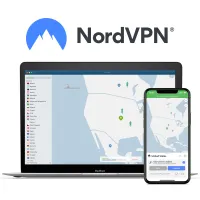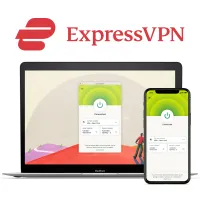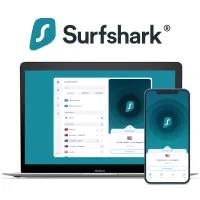
Sign up for breaking news, reviews, opinion, top tech deals, and more.
You are now subscribed
Your newsletter sign-up was successful
Looking for an advantage that'll take your Valorant gameplay to the next level? A VPN won't make you a better player (sorry!), but it will let you spoof your location, get around blocks and bans, and even put a stop to DDoS attacks.
The TechRadar team is constantly putting the best VPNs in the business to the test. We've clocked up more than 3,000 hours of testing, which includes 28,000 speed tests and 2,800 streaming tests, and I've used the data to figure out which VPNs are going to give Valorant players the biggest and best boost.
NordVPN is my #1 pick at the moment, with ExpressVPN and Surfshark hot on its heels. If you're looking for a more general gaming VPN, however, you'll want to check out my guide to {year's} best gaming VPNs.
The best Valorant VPNs in 2026: my top three
1. The best Valorant VPN: NordVPN
If you spend a lot of time on YouTube, you'll be familiar with NordVPN—it's a favorite of content creators, after all. NordVPN is wickedly fast, and reached speeds of over 950 Mbps during my most recent tests. That's more than enough to ensure smooth matches, give ping the boot, and enjoy HD streaming content. See how NordVPN can change your game with a 30-day money-back guarantee.
2. The best UX: ExpressVPN
If you're new to the VPN world, or want a plug-and-play option, ExpressVPN is your best bet. It handles all the configuration for you and gives you the option to hit one button and be paired up with a speedy server. If you'd rather take your pick, you'll be pleased to know the VPN has coverage across 94 countries, helping you get around bans and hop into servers worldwide. Take ExpressVPN for a test drive with a 30-day money-back guarantee.
3. The best cheap VPN: Surfshark
We're all feeling the pinch right now, but Surfshark proves that you don't need to fork out a fortune for an awesome VPN. Surfshark is quick enough to keep up with your most competitive matches, has servers where you need them, and works seamlessly with just about every other gadget you might own. Plus, you'll get unlimited simultaneous connections to play with. Try Surfshark before buying with a handy 30-day money-back guarantee.
Why you need a Valorant VPN
Having trouble getting a good ping? Want to protect your identity when gaming? Looking to get into lobbies that better match your skill? Or maybe you just can't get around restrictions that are blocking Valorant in your region? No matter the issue – we've got the answer. A Valorant VPN could be the solution to these and many other issues you may be facing.
Much like Warzone, Fortnite and numerous other online games, there can be many advantages to using a VPN with Valorant. Skill-based matchmaking (SBMM) is a big one for many if you're having trouble with the current lobbies you find yourself in, but it could also be that you just want to try and land a server closer to the gaming server – or even just change your region to access Valorant at all.
For the unaware, a VPN (virtual private network) is a tool that – among other things – obscures your identity, keeps you safe online, and can make you appear somewhere other than where you actually are. VPNs offer servers all over the world, which in the case of gaming, means you can put yourself closer to the central gaming servers than where you might physically be located.
If you're looking for some easier matches, for example, you can use a VPN to put yourself somewhere in the world that may not typically be busy gaming – some place where early in the morning, perhaps. This way, you'll have a better chance of landing a lobby with fewer top-tier players.
No matter the reason, getting up and running with a Valorant VPN is easy. We've done that hard part in narrowing down the best options, now all you need to do is keep reading to find out more!

How to choose a Valorant VPN
When it comes to the best Valorant VPN, there are a few things to keep in mind. Foremost, you want a VPN that has servers across multiple regions around the world. Most of the popular VPNs do, but you may want to check first if you plan to use any region in particular.
You'll especially want to pay attention to the number of servers a VPN hosts across the world. Speeds are important as well, with the top ones on our list all offering speeds that will work well for gaming on any platform – especially our current fastest VPN, Surfshark.
If you plan to use a VPN for Valorant on your router, you, of course, want to make sure that a router VPN is available for your console, but it also means there should be little to no increase in ping.
Good security will keep you protected from sore losers that may fire up a DDoS attack as well and your ISP throttling bandwidth. Both good things to keep in mind when choosing a Valorant VPN.
FAQs
Can you get banned for using a VPN for Valorant?
You may think that using a Valorant VPN would toe the line a bit, but it's not, in fact, cheating. Most games allow for the use of a VPN to land closer to the main servers and lower your actual ping, so it would be extremely unlikely that the ban-hammer would fall just because you're trying to improve your gaming experience.

Does a Valorant VPN improve ping?
Using a VPN for Valorant won't necessarily lower your ping, but it will help ensure you've got the strongest possible connection. To achieve this, you want to choose a server that is near the gaming servers, which may be worth a bit of testing to see which does the job best. Some servers will be faster and more reliable than others, so you probably want a few test runs before you decide on your favorite.
We test and review VPN services in the context of legal recreational uses. For example:
1. Accessing a service from another country (subject to the terms and conditions of that service).
2. Protecting your online security and strengthening your online privacy when abroad.
We do not support or condone the illegal or malicious use of VPN services. Consuming pirated content that is paid-for is neither endorsed nor approved by Future Publishing.
Sign up for breaking news, reviews, opinion, top tech deals, and more.

Adam is the Editorial Director of High-Yield content at Future. Leading an outstanding team, he oversees many articles the publisher produces about subscriptions and services including VPN, TV streaming, and broadband. In addition to identifying new e-commerce opportunities, he has produced extensive buying guides, how-to-watch content, deal news, and in-depth reviews. Adam's work can be seen on numerous Future brands including TechRadar, Tom's Guide, T3, TTR, Android Central, iMore, Windows Central, and Real Homes.


